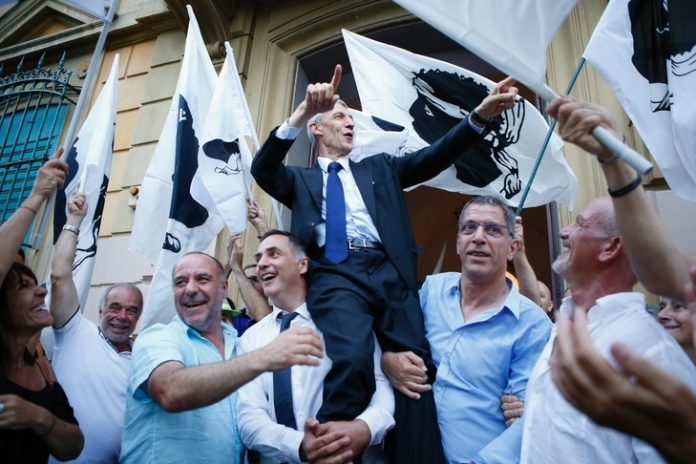The Basque Country and other many places have seen ongoing debate related to participation in elections. Should a National Liberation Movement participate in a statewide election despite knowing that these elections are a belonging ritual and that by taking part we show belonging to that society? Should we renounce the benefits those election may generate? And should we participate, what should that participation be like? Well, in Corsica they worked out something, namely, participating in the French elections not on a party basis, but as representatives of the Corsican People. We bring up this news persuaded that it may be a model for us.
It has set off a political earthquake. The June 2017 French election has caused big surprise in Corsica after nationalist parties easily prevailed, earning 3 out of the 4 MPs in the island. The new strategy led by the native nationalists is the driving force behind this historical victory, a follow up to the successful Corsican Assembly elections held in 2015.
Pè a Corsica is a coalition launched for the 2015 Corsican elections, made up by of two main nationalist parties, the pro-autonomy Femu a Corsica and the pro-independence Corsica Libera, following a mutual agreement. It did not take long to pay off: the coalition got 45% of the seats, nearly a landslide, as well as the presidency of the Corsican Assembly, presided over by the Corsican nationalist Gilles Simeoni.
The formula was repeated on the 2017 French presidential election. Despite uncertainty related to the effect territorial election results would cast on the French election, they have beaten even the most optimistic projections, with the nationalist coalition shattering the political hegemony held to date by French leftist and rightist parties.
Since the National Liberation Front of Corsica (FLNC) gave up its armed campaign, in 2014, bridges among nationalists have been easier to build, so putting an end to their ages-old strained relations. Political analysts have stressed the close identification between youth and nationalist vote, as well as revealing difficulties facing Macron’s party, as compared to other French regions, to establish itself in Corsica.
The coalition Pè a Corsica pledged to be “the voice of the Corsicans in Paris”. Its priorities include the statute of the island resident, officialdom of Corsican language, amnesty for FLNC prisoners, and a native legislating power, to mention but a few.
Corsica remains the region with largest autonomy in France. Early 18th century saw its liberation from Genoa, but France took over it later that century. In late 19th century, the first Corsican nationalist groups spring up, but the nationalist movement had to wait until the 60s of the 20th century to come up to its first relevant, still low results in the island’s elections, a far cry from the present-day latest elections.

